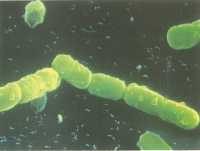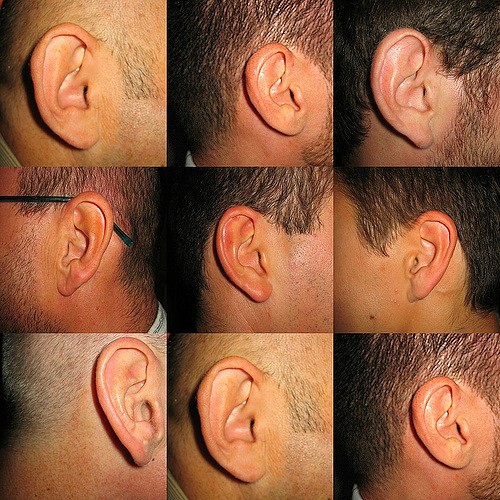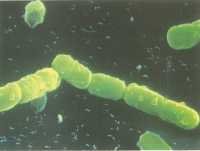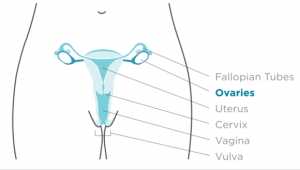Drinking More Water May Reduce Frequency of Urinary Tract Infections
 Professor Yair Lotan MD
Chief of Urologic Oncology
Holder of the Helen J. and Robert S. Strauss Professorship in Urology
UT Southwestern Medical Center at Dallas
Department of Urology
Dallas, Texas 75390-9110
MedicalResearch.com: What is the background for this study? What are the main findings?
Response: Urinary tract infections are extremely common in women and many women experience recurrent episodes which impact their quality of life. There are also many women who do not drink as much water as is recommended.
This study found that in healthy women with recurrent UTIs who drink less than 1.5 liters per day, the additional intake of 1.5 liters of water daily reduced the risk of recurrent infections by nearly 50%. (more…)
Professor Yair Lotan MD
Chief of Urologic Oncology
Holder of the Helen J. and Robert S. Strauss Professorship in Urology
UT Southwestern Medical Center at Dallas
Department of Urology
Dallas, Texas 75390-9110
MedicalResearch.com: What is the background for this study? What are the main findings?
Response: Urinary tract infections are extremely common in women and many women experience recurrent episodes which impact their quality of life. There are also many women who do not drink as much water as is recommended.
This study found that in healthy women with recurrent UTIs who drink less than 1.5 liters per day, the additional intake of 1.5 liters of water daily reduced the risk of recurrent infections by nearly 50%. (more…)Insufficient Sleep in Adolescence May Be A Driver of Risky Behaviors
Combination Oral Contraceptives Associated With Reduced Ovarian Cancer Risk
Our findings are reassuring to women of reproductive age, contemporary combined oral contraceptives (which generally contain lower doses of oestrogen...
Trial Demonstrates Efficacy of Injecting Bacterial Spores Into Resistant Cancerous Tumors
Mammograms: Minorities and Poor Less Likely To Report Barriers to Care
Genetic Risk Score Improves Ability To Predict Diabetics at Risk of Coronary Disease
MedicalResearch.com Interview with: [caption id="attachment_44905" align="alignleft" width="200"] Dr. Morieri[/caption] Mario Luca Morieri MD Section on Genetics and Epidemiology, Research Division, Joslin Diabetes Center Department...
Study Identifies Viral Protein That Allows HPV-Associated Head/Neck Cancers to Spread
Breastfeeding May Alter Gene That Influences How Children Deal With Stress
Health Consequences for the Bereaved
Loss of appetite, sleep disturbances, insomnia, feelings of isolation, inability to make decisions, and confusion are all common symptoms while grieving...
Hyperbaric Oxygen Therapy Can Salvage Hearing In Some Sensorineural Loss Cases
What Types of Health Care Records Are Breached?
MedicalResearch.com Interview with: [caption id="attachment_44776" align="alignleft" width="200"] Dr. McCoy[/caption] Thomas McCoy, M.D. Assistant Professor of Psychiatry Massachusetts General Hospital Psychiatry Massachusetts General Hospital MedicalResearch.com: What is the...
Big Survival Differences in Out-of-Hospital Cardiac Arrest Between EMS Agencies
Study Links Mitral Valve Prolapse with Risk of Sudden Death
Gut Microbiome Can Be Restored in Cancer Patients with Fecal Transplantation
Outbreak of Synthetic Cannabinoid–Associated Bleeding Disorders in Illinois
Dermatology Care Varies Widely by Gender, Socioeconomic Factors and Race
Retrotope Expands Compassionate Use Access to RT001 for Amyotrophic Lateral Sclerosis
 Robert J Molinari, Ph.D.
President and CEO
Retrotope, Inc.
MedicalResearch.com: What is the background for this study?
How does RT001 differ from other treatments for neurodegenerative diseases?
Response: Lipid peroxidation in critical cell and mitochondrial membranes represents a common pathway of cell death in many neurodegenerative diseases, regardless of the initiating trigger of original damage, e.g. aberrant gene expression, misfolded proteins such as tau and amyloid, environmental insults, etc. This hypothesis was supported by work showing that stabilizing lipids (using virtually indistinguishable isotopic variants of the original dietary molecules) was able to mitigate disease-related cell dysfunction, and reverse disease in a variety of animal models, and more recently, in human patients enrolled in clinical trials.
It has been known for decades that lipid peroxidation detritus of oxidized membrane fats are present in most all diseases of degeneration and aging, including Alzheimer’s disease, Parkinson’s disease, atherosclerosis, ALS, Huntington’s, and fatal inborn genetic errors resulting in neurodegenerative diseases (among others). The hypothesis that controlling such oxidation could provide therapeutic benefit was abandoned when numerous formal trials of classical antioxidants, e.g. Co-enzyme Q, Vitamin E, and others failed to provide meaningful benefit. We believed that the antioxidant mechanism used to attempt control of the membrane oxidation was flawed, but that the target itself was correct. Indeed, by using a new class of oral drugs that are lipids fortified against damage at the key susceptible bonds, we observed reduction in lipid peroxidation damage that halted, and even reversed neurodegenerative disease progression. Dosed in amounts and forms similar to omega 3 and 6 supplements, these drugs exhibited profound disease modification across a broad range of diseases in animal models, placebo controlled- and open label- human trials. (more…)
Robert J Molinari, Ph.D.
President and CEO
Retrotope, Inc.
MedicalResearch.com: What is the background for this study?
How does RT001 differ from other treatments for neurodegenerative diseases?
Response: Lipid peroxidation in critical cell and mitochondrial membranes represents a common pathway of cell death in many neurodegenerative diseases, regardless of the initiating trigger of original damage, e.g. aberrant gene expression, misfolded proteins such as tau and amyloid, environmental insults, etc. This hypothesis was supported by work showing that stabilizing lipids (using virtually indistinguishable isotopic variants of the original dietary molecules) was able to mitigate disease-related cell dysfunction, and reverse disease in a variety of animal models, and more recently, in human patients enrolled in clinical trials.
It has been known for decades that lipid peroxidation detritus of oxidized membrane fats are present in most all diseases of degeneration and aging, including Alzheimer’s disease, Parkinson’s disease, atherosclerosis, ALS, Huntington’s, and fatal inborn genetic errors resulting in neurodegenerative diseases (among others). The hypothesis that controlling such oxidation could provide therapeutic benefit was abandoned when numerous formal trials of classical antioxidants, e.g. Co-enzyme Q, Vitamin E, and others failed to provide meaningful benefit. We believed that the antioxidant mechanism used to attempt control of the membrane oxidation was flawed, but that the target itself was correct. Indeed, by using a new class of oral drugs that are lipids fortified against damage at the key susceptible bonds, we observed reduction in lipid peroxidation damage that halted, and even reversed neurodegenerative disease progression. Dosed in amounts and forms similar to omega 3 and 6 supplements, these drugs exhibited profound disease modification across a broad range of diseases in animal models, placebo controlled- and open label- human trials. (more…)Puppies From Commercial Dog Industry Source of Multistate Diarrhea Infections
 Mark Laughlin, DVM
Veterinary Medical Officer
CDC
MedicalResearch.com: What is the background for this study?
How common are Campylobacter infections? How does a Campylobacter infection typically present?
Response: Campylobacter is one of the most common causes of diarrheal illness in the United States, causing an estimated 1.3 million illnesses each year. Most people with Campylobacter infection usually have diarrhea (often bloody), fever, and abdominal cramps. The diarrhea may be accompanied by nausea and vomiting. These symptoms usually start within 2 to 5 days after exposure and last about a week.
Most illnesses from Campylobacter likely occur due to eating raw or undercooked poultry, or from eating something that touched raw or undercooked poultry. Some illnesses can occur from contact with contaminated water, contact with animals, or from drinking raw (unpasteurized) milk.
Since 2009, 13 outbreaks of human Campylobacter infections linked to contact with dogs have been reported to CDC. These outbreaks account for a reported 47 illnesses and 2 hospitalizations.
(more…)
Mark Laughlin, DVM
Veterinary Medical Officer
CDC
MedicalResearch.com: What is the background for this study?
How common are Campylobacter infections? How does a Campylobacter infection typically present?
Response: Campylobacter is one of the most common causes of diarrheal illness in the United States, causing an estimated 1.3 million illnesses each year. Most people with Campylobacter infection usually have diarrhea (often bloody), fever, and abdominal cramps. The diarrhea may be accompanied by nausea and vomiting. These symptoms usually start within 2 to 5 days after exposure and last about a week.
Most illnesses from Campylobacter likely occur due to eating raw or undercooked poultry, or from eating something that touched raw or undercooked poultry. Some illnesses can occur from contact with contaminated water, contact with animals, or from drinking raw (unpasteurized) milk.
Since 2009, 13 outbreaks of human Campylobacter infections linked to contact with dogs have been reported to CDC. These outbreaks account for a reported 47 illnesses and 2 hospitalizations.
(more…)Long Term Antibiotics May Harm Immune Cells of Gut and Mucous Membranes
Functional Imagery Training Improved Weight Loss and Keeping Weight Off
How Much Do Clinical Trials For New Medications Really Cost?
- The study provides realistic cost estimates of pivotal clinical trials that establish drug benefits to support FDA approval of 59 new drugs released for marketing in 2015-2016.
- The median estimated cost was just $19 million, with half of the 138 trials studied clustered between $12 million and $33 million.
- The highest cost trials–with estimates up to $345 million–were for new drugs that were similar to drugs already available and already proven in treating serious illnesses.
Children with Emotional and Behavioral Issues May Benefit From Drumming Lessons
 Dr. Marcus Smith PhD
Reader in Sport and Exercise Physiology
University of Chichester
Co-founder, Clem Burke Drumming Project
MedicalResearch.com: What is the background for this study?
Response: The research group first started to examine rock drumming from a scientific perspective in 1999 through collaboration with Clem Burke, drummer with the iconic band ‘Blondie’. In 2008 the Clem Burke Drumming Project (CBDP) was formed (visit clemburkedrummingproject.org for further information) where academics from different disciplines came together to not only explore the physiological demands of rock drumming but also the potential use of rock drumming as an intervention in research studies. Rock drumming is attractive to the scientist in that it is a unique activity that requires the coordination of multiple limbs to produce the required drumming pattern. Inherent demands relating to timing, tempo and volume must also be met. Therefore, the ability to manipulate these facets of drumming performance in a research setting is very appealing. In relation to potential research populations drumming has a universal fascination regardless of age, gender, culture, language competency and ethnicity. Anecdotal evidence suggests that drumming is a ‘cool’ activity that has a unique ‘language currency’ in terms of stimulating communication within and between those who can and cannot play the drums.
The impetus for our research study came from parents of autistic children contacting us to express their belief that drumming was having a positive effect on their child’s physical and psychological behaviour. A review of the literature showed a range of anecdotal evidence in support of such statements (Freidman 2000) and an increase in empirical drumming based research being undertaken (Bungay 2010). More recent studies have reported psychosocial benefits such as enhanced communication (Maschi et al. 2010; 2012), emotional processing and tension reduction (Flores et al. 2016; Maschi et al. 2010; 2012), group cohesion and connectedness (Blackett et al. 2005), concentration, psychomotor coordination and posture (Chen et al. 2017). The majority of this work was undertaken with adolescents with very little work focused on younger age groups. (more…)
Dr. Marcus Smith PhD
Reader in Sport and Exercise Physiology
University of Chichester
Co-founder, Clem Burke Drumming Project
MedicalResearch.com: What is the background for this study?
Response: The research group first started to examine rock drumming from a scientific perspective in 1999 through collaboration with Clem Burke, drummer with the iconic band ‘Blondie’. In 2008 the Clem Burke Drumming Project (CBDP) was formed (visit clemburkedrummingproject.org for further information) where academics from different disciplines came together to not only explore the physiological demands of rock drumming but also the potential use of rock drumming as an intervention in research studies. Rock drumming is attractive to the scientist in that it is a unique activity that requires the coordination of multiple limbs to produce the required drumming pattern. Inherent demands relating to timing, tempo and volume must also be met. Therefore, the ability to manipulate these facets of drumming performance in a research setting is very appealing. In relation to potential research populations drumming has a universal fascination regardless of age, gender, culture, language competency and ethnicity. Anecdotal evidence suggests that drumming is a ‘cool’ activity that has a unique ‘language currency’ in terms of stimulating communication within and between those who can and cannot play the drums.
The impetus for our research study came from parents of autistic children contacting us to express their belief that drumming was having a positive effect on their child’s physical and psychological behaviour. A review of the literature showed a range of anecdotal evidence in support of such statements (Freidman 2000) and an increase in empirical drumming based research being undertaken (Bungay 2010). More recent studies have reported psychosocial benefits such as enhanced communication (Maschi et al. 2010; 2012), emotional processing and tension reduction (Flores et al. 2016; Maschi et al. 2010; 2012), group cohesion and connectedness (Blackett et al. 2005), concentration, psychomotor coordination and posture (Chen et al. 2017). The majority of this work was undertaken with adolescents with very little work focused on younger age groups. (more…)IXORA-S Study Suggest Taltz May Provide Significantly Greater Clearance of Nail Psoriasis
Need For Better Treatments For Chronic Nerve Pain After Trauma Remains Serious Problem
Enzyme Key To Overcoming Antibiotic Resistance in Pseudomonas Infections
 Dr Dorival Martins
Department of Microbiology and Immunology
Meakins-Christie Laboratories, Research Institute
McGill University Health Centre
Montreal Canada.
MedicalResearch.com: What is the background for this study?
Response: Antibiotic tolerance, together with drug resistance, makes bacteria refractory to antibiotics and can cause treatment failure in subacute and chronic bacterial infections.
Pseudomonas aeruginosa, a major health concern worldwide, can cause severe chronic infections that are refractory to antibiotic treatments due to tolerance. Since the discovery of new antibiotics has been drastically diminished over the last decades, overcoming tolerance could be a strategy to enhance the efficacy of currently available antibiotic treatments. However, very little is known about the mechanism of tolerance, even though this phenomenon has been observed over 60 years ago.
(more…)
Dr Dorival Martins
Department of Microbiology and Immunology
Meakins-Christie Laboratories, Research Institute
McGill University Health Centre
Montreal Canada.
MedicalResearch.com: What is the background for this study?
Response: Antibiotic tolerance, together with drug resistance, makes bacteria refractory to antibiotics and can cause treatment failure in subacute and chronic bacterial infections.
Pseudomonas aeruginosa, a major health concern worldwide, can cause severe chronic infections that are refractory to antibiotic treatments due to tolerance. Since the discovery of new antibiotics has been drastically diminished over the last decades, overcoming tolerance could be a strategy to enhance the efficacy of currently available antibiotic treatments. However, very little is known about the mechanism of tolerance, even though this phenomenon has been observed over 60 years ago.
(more…)Study Finds No Need to Fear Carbohydrates
Number of Knee Arthroscopic Procedures Declines
Who Has the Highest Rate of Readmission After Hospital Discharge?
 Andrea Gruneir, PhD
Department of Family Medicine
University of Alberta
Edmonton, AB Canada
MedicalResearch.com: What is the background for this study?
Response: Hospital readmissions – when a patient is discharged from hospital but then returns to hospital in a short period of time – are known to be a problem, both for the patients and for the larger health system. Hospital readmissions have received considerable attention and there have been a number of initiatives to try to reduce them, but with mixed success. Older adults are among the most vulnerable group for hospital readmission. Older adults are also the largest users of continuing care services, such as home care and long-term care homes (also known as nursing homes). Yet, few large studies have really considered how older adults with different pathways through hospital compare on the risk of hospital readmission.
In our study, we take a population-level approach and use health administrative data to create a large cohort of older adults who were hospitalized in Ontario between 2008 and 2015. For each of the 701,527 patients in our study, we identified where they received care before the hospitalization (in the community or in long-term care) and where they received care after discharge (in the community, in the community with home care, or in long-term care). (more…)
Andrea Gruneir, PhD
Department of Family Medicine
University of Alberta
Edmonton, AB Canada
MedicalResearch.com: What is the background for this study?
Response: Hospital readmissions – when a patient is discharged from hospital but then returns to hospital in a short period of time – are known to be a problem, both for the patients and for the larger health system. Hospital readmissions have received considerable attention and there have been a number of initiatives to try to reduce them, but with mixed success. Older adults are among the most vulnerable group for hospital readmission. Older adults are also the largest users of continuing care services, such as home care and long-term care homes (also known as nursing homes). Yet, few large studies have really considered how older adults with different pathways through hospital compare on the risk of hospital readmission.
In our study, we take a population-level approach and use health administrative data to create a large cohort of older adults who were hospitalized in Ontario between 2008 and 2015. For each of the 701,527 patients in our study, we identified where they received care before the hospitalization (in the community or in long-term care) and where they received care after discharge (in the community, in the community with home care, or in long-term care). (more…)




























